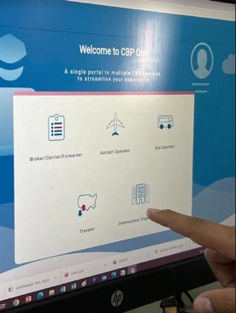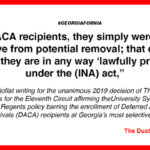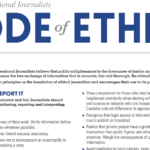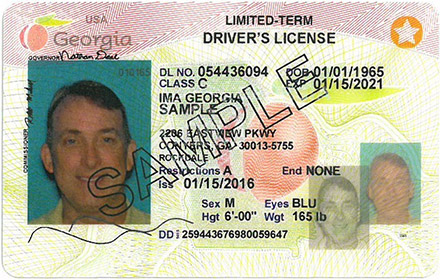
The Austin Rhodes Show (Dec 27, 2022)
Transcript by Rev.com My cost: $44.00 and two hours
Guest show host Phil Kent:
“You’re back with Phil Kent, sitting in for Austin Rhodes today, and, uh, you can text me, especially as we interview our next guest over at 706-863-5800. We were talking before the news to Congressman Rick Allen, and we touched a little bit on the, uh, open borders problem nationally.
But my next guest is really an expert in this area in Georgia, and this is D.A. King, President of the Dustin Inman Society. He’ll tell you a little bit about how that society got named, and what he’s doing, and I want to talk about, uh, what’s going on with regard to the illegal immigration problem in Georgia.
Uh, we can talk about it all day nationally, but D.A. King, you’re on the air with Phil Kent. How are you?
D.A. King:
I’m very, very well. Phil, I’m glad to be here, and I’ve been listening to your show. You are doing your usual stellar job as a radio host, and I want to add something to the show, and that is, Go Dawgs!
Guest show host Phil Kent:
(laughs) Absolutely. We’re on the side of the angels on that one too. But, um, I know you’re very much appreciated for all you have done in the past dozen years or so, and helping to implement some, uh, not only immigration control laws in this state through the legislature, but you’re also saying, “Let’s just enforce the laws on the books.”
So, I, I want you to focus a little bit on Georgia, and what are you and the Dustin Inman Society doing?
D.A. King:
Well, that- that’s kind of… You, you, you said my, uh… My favorite word when it comes to illegal immigration, which I regard as organized crime. I appreciate you’re saying the word enforcement, and, and thank you again, Phil.
The Dustin Inman Society is a, a labor of love here at our house. In the year 2003, I, set aside my own business and spent our savings, and, and refinanced our house to try to form a non profit to educate people, in- including legislators, and it used to be the media, on illegal immigration.
It’s TheDustinInmanSociety.org. it’s named after a Georgia kid named Dustin Inman, who is forever 16 because his family was hit by a speeding car on their way to the North Georgia mountains on Father’s Day Weekend, the year 2000.
Um, an illegal alien driving a car ran into the back of the Inman family car in [inaudible 00:02:44] Georgia, stopped at a light, and it killed Dustin instantly, and put his mom in a wheelchair for the rest of her life. Both, um, parents were put in a… In a coma, and when they woke up, they were told their only child was gone.
Um, and people sometimes tell me that illegal immigration is, is, is a victimless crime, and, and I, I would double dog dare them to tell that to the Inman family if there was an Inman family left. The sad ending to that story, Phil, as, as you know, is that Billy and Kathy were the parents and Dustin was the… Was the only child.
Dustin was killed in the crash. Kathy later died of a… Of her injuries as a direct result of the crash after she spent 20 years in a wheelchair, and Billy died before she did, taking care of his wife and trying to earn a living. It- it’s a horrible, horrible story-
Guest show host Phil Kent:
It, it is, it’s a sad story.
D.A. King:
[inaudible 00:03:40] upset. I get upset when people tell me that it’s a victimless crime.
Guest show host Phil Kent:
Well, I’m glad you’re underscoring that. Think of all the Dustin Inmans, uh, since then, uh, it- it- it’s outrageous, but I’m glad. That was probably the spark that motivated you, right?
D.A. King:
It, it was. Uh, we have a website, The NewDustinInmanSociety.org, but while I’m on that topic, and [inaudible 00:04:00] before I go, but we have something that’s, that’s directed only at Georgia, and it’s called ImmigrationPoliticsGA.com.
IImmigrationPoliticsGeorgia, as in G-A, .com, and- when we have true to life immigration stories, and opinions, and news that are relevant r- right here in Georgia, and by the way, for people who don’t know, Georgia is home to more illegal aliens than is Arizona.
We have more people living here illegally than we have green card holders. That’s right here in the state of Georgia.
Guest show host Phil Kent:
That’s a shocker.
D.A. King:
It, it is a shocker.
Guest show host Phil Kent:
Well, so what now? What is the, uh… What’s the mission now in Georgia?
D.A. King:
Well, we- we’ve been very successful in the last 17, 18 years, getting, legislation passed here in Georgia on a state level aimed at deterring illegal immigration into the state, and what we have learned from watching the corporate funded illegal alien lobby is that if you make it more difficult for somebody here illegally to get a job, a benefit, or a service, especially a driver’s license, th- they tend to go to other states after they cross the border illegally.
And we put a, a large number of laws on the books, and we’re grateful to all of the state legislators in the past who helped us, most of whom are gone now, and what we’re finding is the laws aimed at, at illegal immigration in Georgia, including criminal illegals, are being completely ignored by the people we elected to enforce them.
And I know that, that a conservative audience doesn’t want to hear negative reports about Republicans, but the fact is that the laws on the books aimed at illegal immigration in the state of Georgia are being treated as a joke.
Guest show host Phil Kent:
How can we, um, get these laws enforced? Do we, uh… Do we contact the Attorney General’s office, do we contact our lawmaker, what, um… What is your strategy?
D.A. King:
Well, I’ve been at it quite awhile, I do it all day everyday. Um, as an example, I, I just… You have to go one at a time, as far as I know, and I mean this sincerely. I’m not trying to be a smart alek, but as far as I know, there’s nobody in the state of Georgia checking on compliance of any of the multiple laws we have in place, e- except for yours truly.
And recently, I filed a complaint with, um, the District Attorney for over Carroll County, Georgia. It took me about a year to give Carroll County commissioners to recognize they were in violation of laws aimed at giving public benefits to illegal aliens.
Um, they eventually, after about eight months, slowly started to change their, their… The way they did business, but I filed a complaint and nothing is going to happen, is the short version. But things like this, Phil, kind of get a little blurry eyed, boring to people.
When you talk about jobs, benefits, and services we have on the books, for example, a law that says most employers in Georgia with more than 10 employees are supposed to use the no cost federal e-verify system.
Uh, we, we know that if, if, uh, somebody here illegally can get a job easier in Alabama or Nebraska than you can in Georgia, he will at least try to, to a- avoid us, but the e-verify laws are not enforced.
Guest show host Phil Kent:
Well, and that’s, that’s a tragedy. You know, just as an aside, when I have workers at my home, I, I have to always check, “Do you have e-verify?” And if not, they’re not working, uh-
D.A. King:
Yeah.
Guest show host Phil Kent:
At least at my place, and I hope other people do that too.
D.A. King:
It’s always a good idea to at least ask for, for a driver’s license. That’s a… That’s a good tip. It’s not always… To veer off for a moment, it’s not always an assurance. We do, in Georgia, issue driver’s licenses and state ID cards to somewhere around 20,000 illegal aliens who have a deferral on deportation. They’re still illegal, but we still give them a driver’s license.
Guest show host Phil Kent:
Well, I know you’ve been working with the Dustin Inman Society and some legislators to try to close that loophole, at least have some wor-… Some writing on the license that it’s, um… It’s not, uh, for, for voting, or any other purpose.
D.A. King:
Well, uh, we have, and we, we, we had some limited success in the Senate years ago. Um, Phil, but when I say things like this are, are boring, I can… I can point to something that has a little more direct of wide appeal, and that is the fact that here in Georgia, I’m proud to have worked on it.
We have a law in place that says that all jailers in this state are supposed to use a reasonable effort to determine effectively the immigration status of the prisons in their jail, and report any illegal aliens to the feds.
Now, that law has been on the books in one form or another since 2006, and in the form it’s in now since 2011, when we passed a bill called House Bill 87, um, the law that I just mentioned, and I want to say it again.
The law says that jailers are supposed to determine immigration status as best they can, and report illegals to the feds. Um, that law is being ignored. There’s 150, 160 jails in, in the state of Georgia, and to my knowledge, while I haven’t had time to check all of them, the, the, the lack of compliance is the polite way to put it [inaudible 00:09:31]
Guest show host Phil Kent:
Well, that’s, that’s appalling. That’s appalling. In fact, I, I would hope our county commissioners all over the state would pressure the Sheriff, the Constitutional officer who- who’s the chief jailer to follow the law, of all people. (laughs) The, the chief law enforcement officer of the county.
D.A. King:
Well, that… I don’t disagree. That’s not happening. I look forward, I know that one of of your guests, I think I heard that you’re going to have District Attorney Bobby Christine on later.
Guest show host Phil Kent:
That’s right, after the 5:00 news, yes. He’s-
D.A. King:
I- I- I- I- I’ve read this gentleman’s, um… His bio, and he’s been a very, very im- impressive official. I, look forward to having the opportunity to talk to him sometime soon about this.
But I, I need to impress upon people, and again, thank you for the time. I, want to make it clear that the federal government has a program that, that allows Sheriffs, or jailers, to check the immigration status, it’s called 287 g.
The law we put in place here in Georgia that applies to all jails was designed to be a plan b, in case 287 g went away. Well, 287g did go away in Gwinnett County, and here where I live, in Cobb County.
But just a couple of, of facts, if I may very quickly-
Guest show host Phil Kent:
Sure.
D.A. King:
To keep people’s interest in this is Gwinnett County, in 2010, or 2009, before the 287g program went into effect, um, the Sheriff ran what was called a “surge”, or a trial test, a 26 day test of, of the efficiency of this 287g program in, in, in which the federal apparatus is used by the jailers to check immigration status.
In 26 days, ICE said they had found and placed detainers on 914 foreign born inmates to put them into deportation proceedings because they were illegal aliens. The numbers in the Gwinnett jail at, at this outset, revealed that 68% of the foreign born population of the jail was here illegally, they were illegal aliens.
54% of that 914 had a previous criminal history, and most of that previous immi-… Previous criminal history was in Gwinnett County. What kind of crimes were, were people being deported?
Um, murder, 13 charges, rape, 15, armed robbery, 28, child molestation, kidnapping, battery, theft, drug dealing. It goes on and on.
Guest show host Phil Kent:
Well, you’re making a good point. You’re making a good point. We’ve got about a minute left, and I want to hold you over from the, uh… The break. Now aren’t there still some counties, and the state police still use 287g?
D.A. King:
Th- there’s the Department of Corrections and the prison system uses 2A7G, and I think there’s four counties that still use [inaudible 00:12:20]
Guest show host Phil Kent:
Well, I would urge counties to take a look at that because that was a huge public safety tool. I’m talking with D.A. King, the President of the Dustin Imnan Society. I’m gonna hold him over from the break, uh, and also, uh, D.A., I want to ask you about some parental choice school legislation, uh, that, that a lot of people like school choice but there’s a glaring problem, and I want to talk to you about that after the break.
All right, I’m with, uh, Austin Rhodes today, guest hosting. This is Phil Kent, and I hope you’ll stay with us, and don’t forget to text me at 863-5800.
[inaudible 00:13:06]
You’re listening to WGAC, AM 580, it’s Phil Kent guest hosting today on the show, and I want to continue our discussion with D.A. King. He’s an expert in the area of illegal immigration, and were talking about some great information earlier that he has told our listeners about the lack of enforcement, appalling lack of enforcement in Georgia.
And, uh, D.A., thanks for, uh, holding on and, um, being back on the air. Let’s talk… Uh, let’s finish up with that, and let’s talk about this, um, school choice bill you have been telling me about recently.
D.A. King:
It’s m- my pleasure, Phil, and again, thank you. If I may, just, just 20 more seconds.
Guest show host Phil Kent:
Sure.
D.A. King:
I, I want people to know that the law that I just mentioned that requires all jailers to use reasonable effort to determine immigration status of illegal aliens in their jail and report it to the feds has no penalty clause in it.
Uh, we didn’t ever dream that people who run jails would, would disobey this law, so here’s some news. You’re probably the first… this is the first time I- I’m aware of it, um, going out public, but I am very, very confident that there will be a bill introduced in the legislature that will produce a strong and deterrent penalty to the jailers who don’t obey the law that we just talked about.
Guest show host Phil Kent:
Well, I’m glad to hear of that. I’m gonna certainly write about it, and, and, and talk about it myself, and hopefully we’ve got some state law makers, uh, in the area in Georgia that are listening, so, uh, thanks for that, uh, D.A.
Go ahead and, and tell us about this, uh, parental choice bill, and your concern.
D.A. King:
Well, there- there- there’s an effort. Um, there were three bills in the last, um, legislative session that were aimed at providing… And I’m not making this up, providing, um, tax payer funded tuition for private schools for people in the country illegally, and it would benefit their entire family.
I’m gonna say it again in a different way. There were three bills under the gold dome that had they passed, would have provided in state tuition… Excuse me. Um, K through 12 private school tuition for illegal aliens.
Guest show host Phil Kent:
Well that’s a shocker. Now, uh, that was derailed, thankfully, but, um, is… I’m assuming it’s coming back?
D.A. King:
They… The, the information I’m getting is that there will be a push on to do exactly what we just talked about again, and people are calling it school choice, or educational freedom, and I’ve learned that if you talk about this, especially to a conservative audience, it’s a good idea.
So for me personally, I think that the ability for people to get tax dollars to send, um, their kids to a school other than what they’re being taught in the public school system is an excellent idea.
Guest show host Phil Kent:
Right.
D.A. King:
I do not think that it behooves us to encourage and reward illegal immigration any more than we already do in the state of Georgia by doing that on the tax payer’s dime.
Guest show host Phil Kent:
Well, that’s right. You don’t want any more magnets, so this is where, uh, you want language to, uh… To make sure that that doesn’t happen.
D.A. King:
We have drafted… I’m not quite done with it, but we’ve drafted language that easily excludes illegal aliens from, quote, unquote, “school choice.” If we take a look right now, um, people in the country illegally cannot qualify for the HOPE Scholarship, the Zell Miller Scholarship.
Um, right now, in state tuition is, is out of reach for people in the country illegally in our public colleges. There is absolutely no reason to, to even consider providing K through 12 private school education.
But when people talk about school choice, the last thing they’re going to hear is anything having to do with illegal immigration, or the fact that here in Georgia, we have more illegal aliens than Arizona.
Guest show host Phil Kent:
Well, that’s right. Parental choice good, but, uh, no loophole for the illegals to, uh… To get more tax payer money, and to, to steal slots. D.A. King, give us your website one more time.
D.A. King:
Um, thank you very much, Phil. It’s the new… It’s NewDustinInmanSociety.org. That is our, our main website-
Guest show host Phil Kent:
Wonderful.
D.A. King:
But people are gonna get the most use out of ImmigrationPoliticsGA.com.
Guest show host Phil Kent:
Thank you, D.A. King, we appreciate that information today. Best wishes.
D.A. King:
My pleasure. Thank, thank you, Phil.
Guest show host Phil Kent:
Stay with us after the news. You’ve got Phil Kent and Austin Rhodes.
[inaudible 00:21:54]
end.







































You must be logged in to post a comment.